On 23. September, a special ‘Europe for Rail’ train, organised by Europe’s Rail Joint Undertaking members and the European Commission, departed from Brussels to Berlin, marking the beginning of InnoTrans2024! 🌍🚆 EPF took part in one of the panel debates on the train – emphasizing the importance of thinking from the end-users’ point of view in order to make rail the preferred mode of choice for passengers across Europe.
The ‘Europe for Rail’ train event brought together European rail decision makers and key stakeholders to discuss and prepare for the future of rail transport. On board, participants dived into key topics:
🚉 Rail benefits for passengers,
💡 Innovative solutions,
👩💼 Women in rail,
🤝 Strengthening collaborations.
Among the four panel debates on the programme, the first one focused on “How can rail bring more value to passengers” and brought together key industry experts and decision-makers, to explore how rail services across Europe can be enhanced for the benefit of end-users. The panel, which opened with remarks from Belgium’s Deputy Prime Minister and Minister for Mobility, Georges Gilkinet, focused on several important issues including investments, cross-border connectivity, digitalization, and high-speed rail solutions. Other speakers included Kristian Schmidt (Director for Land Transport at the Directorate-General for Mobility and Transport, European Commission), Hinne Groot (Senior Policy Officer at the Dutch Ministry of Infrastructure and Water Management), Ethem Pekin (Head of Economic Policy and Sustainability, CER), Nick Brooks (Secretary General, Allrail), and Delphine Grandsart (Senior Researcher, EPF).
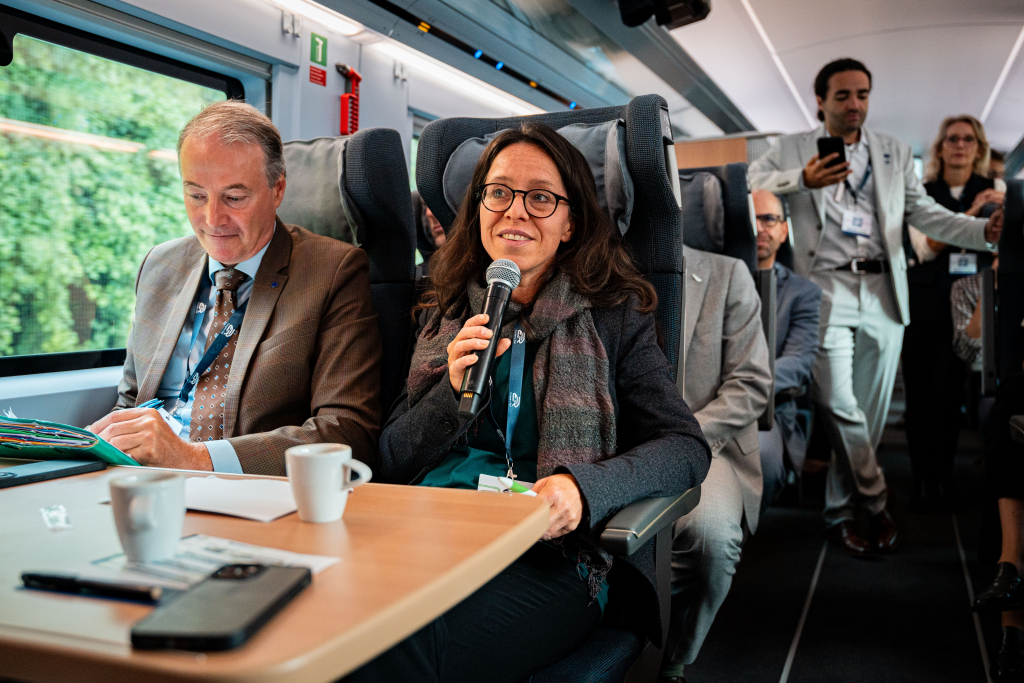
Photo credit: EU-Rail – JLM Photographics
Some key insights from the discussion:
- The need for user-centric rail systems
Kristian Schmidt highlighted the need for “better, stronger, faster” rail services (inspired by the Olympic slogan) to serve passengers. He reiterated the importance of easy access, affordability, and competition in improving rail services, and ensuring passengers are not left stranded in case of operational disruptions. - Cross-border connectivity
Hinne Groot emphasised the importance of the International Rail Passenger (IRP) platform’s work and the need for more cross-border trains to meet user demand. He pointed out that a corridor approach, focusing on the most needed routes, would allow for a demand-driven approach to rail expansion. - Multimodality and sustainability
Delphine Grandsart spoke about the importance of adopting a user-centric perspective: Focusing on passenger needs – value for money, reliability, ease of use – is crucial to changing habitual travel behaviours, and achieving a shift to rail as the backbone of a multimodal and sustainable mobility system.
Photo credit: EU-Rail – JLM Photographics


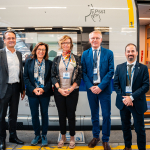
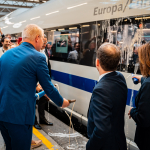
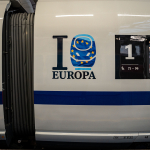
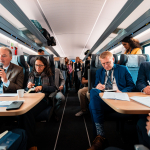
 Stay informed!
Stay informed!